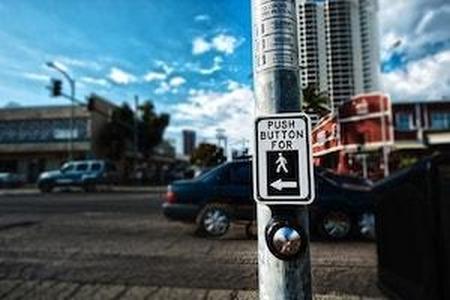Recent Blog Posts
Asylum Appeals 101: Your Rights Under International Law
 On April 21, 2017, a Nicaraguan man applying for asylum in Florida was deported back to his native country, despite a history of threats made against him, and the fact that his application was in process. There has been considerable outrage over this matter, but also some confusion.
On April 21, 2017, a Nicaraguan man applying for asylum in Florida was deported back to his native country, despite a history of threats made against him, and the fact that his application was in process. There has been considerable outrage over this matter, but also some confusion.
Immigration laws are not being enforced in the manner to which most people are accustomed, and this can lead to paralysis. Understanding your rights can help protect you.
Refugees vs. Asylees
Many people who are uninformed are prone to confuse refugees and asylees, while arguing that the former should be permitted to enter the United States and the latter should not. In reality, the only real difference between the two classes is that refugees must apply for status while still outside the country, and asylees must do so after entry, regardless of whether that entry was with or without inspection. Either way, the person applying is doing so out of a well-founded, credible fear of persecution if he or she is returned to his or her home country.
4 Things to Do After Your Slip and Fall Accident
 If you have been injured in a slip and fall accident on another’s property, there are steps you can take to help your case in the direct aftermath of the accident and in the months that follow.
If you have been injured in a slip and fall accident on another’s property, there are steps you can take to help your case in the direct aftermath of the accident and in the months that follow.
Slip and falls are created by dangerous conditions that businesses and landlords should avoid creating. These accidents can cause serious injury or aggravate existing injuries.
Follow these steps after your accident to help your recovery:
-
Take pictures at the accident scene. One of the hardest factors to prove in a slip in fall is the cause of the slip. Taking pictures at the scene—i.e. the liquid on the ground or the unevenness of the floor—will be crucial to your claim.
-
Seek all medical attention needed. It is understandable if you believe at first that you were not injured badly, yet later discover that the injury is painful and affects your life and job. Do not let such a circumstance convince you that you do not have a valid claim. It is also important to follow the doctor’s advice with regard to treatment and medication.
Calculating Spousal Support in an Illinois Divorce
 While alimony awards during divorce are less frequent than they once were, there are times that it is still warranted. The following information explains how you can determine if you might be entitled to support (or required to pay it). You shall also learn how support is calculated during an Illinois divorce, and why legal assistance is recommended for those dealing with alimony issues.
While alimony awards during divorce are less frequent than they once were, there are times that it is still warranted. The following information explains how you can determine if you might be entitled to support (or required to pay it). You shall also learn how support is calculated during an Illinois divorce, and why legal assistance is recommended for those dealing with alimony issues.
When Alimony May Be Owed
Many situations may lead to a ruling for alimony, but most share a common thread: one spouse is financially disadvantaged. This disadvantage could be caused by a lack of education, job experience, training, health issues, or an extended period outside of the workforce. It can also mean more than an inability to support one’s self; it might also apply if one party has become accustomed to a particular lifestyle during the marriage but is unable to maintain it on their own. The latter is typically seen in high net worth divorces, but the former may occur during any divorce case.
Combatting the Common Misconceptions in Foster Child Adoption
 An annually released report from the Illinois Department of Children and Family Services (DCFS) indicates that there are nearly 6,000 children in the custody of the state’s foster care system. Estimates suggest that there are as many as 100,000 throughout the country, waiting for a forever family. Unfortunately, there are several misconceptions about these children that ultimately decrease their rate of adoption. This misinformation is not only inaccurate, but it is also damaging to the children in urgent need of a safe and loving home. The following information combats these inaccuracies, and it provides details on where families can find assistance with the foster care adoption process.
An annually released report from the Illinois Department of Children and Family Services (DCFS) indicates that there are nearly 6,000 children in the custody of the state’s foster care system. Estimates suggest that there are as many as 100,000 throughout the country, waiting for a forever family. Unfortunately, there are several misconceptions about these children that ultimately decrease their rate of adoption. This misinformation is not only inaccurate, but it is also damaging to the children in urgent need of a safe and loving home. The following information combats these inaccuracies, and it provides details on where families can find assistance with the foster care adoption process.
You Will Be Pushed into Adopting Extra Children
A lot of people seem to worry that getting involved with the foster care system means taking on more children than they can handle. Quite the opposite is usually true. Although the system is certainly overloaded, DCFS tends to err on the side of caution when placing children with a family. Many of these children have already witnessed abuse or neglect; the last thing they need is a home where they do not receive the love and attention they deserve. So, if you can only adopt one child, speak up and say so. You have control over the size of your family.
What is Expedited Removal?
 In the current immigration climate, the concept of expedited removal is often bruited about by those in the know. However, many, including professionals, are unclear as to what expedited removal actually is, versus what it has been, versus what the current administration intends for it to be. The concept is complex, and if you or a loved one are going to be in a situation where you face the threat of being removed, it is critical that you know your options.
In the current immigration climate, the concept of expedited removal is often bruited about by those in the know. However, many, including professionals, are unclear as to what expedited removal actually is, versus what it has been, versus what the current administration intends for it to be. The concept is complex, and if you or a loved one are going to be in a situation where you face the threat of being removed, it is critical that you know your options.
Origins of the Procedure
The concept of expedited removal—when a potential visitor or immigrant is turned around without being permitted a hearing or indeed many other due process rights that citizens possess—was first propagated in 1996, in the text of the Illegal Immigration Reform and Immigrant Responsibility Act (IIRIRA). At the time, the procedure was only used against those who met the following characteristics:
- Are inadmissible and have not obtained any kind of waiver of the ground;
Car Accidents at Intersections: Pedestrians Beware
 Pedestrians are often in the bulls-eye of danger when it comes to car accidents. Traffic at intersections can be a major area of confusion and concern. About 40 percent of the estimated 5,811,000 crashes that occurred in the United States in 2008 were intersection-related crashes. Although road rules can be seemingly clear, many drivers—for a multitude of reasons—can find themselves involved in a nasty car accident scene.
Pedestrians are often in the bulls-eye of danger when it comes to car accidents. Traffic at intersections can be a major area of confusion and concern. About 40 percent of the estimated 5,811,000 crashes that occurred in the United States in 2008 were intersection-related crashes. Although road rules can be seemingly clear, many drivers—for a multitude of reasons—can find themselves involved in a nasty car accident scene.
Sometimes, signage and a lack of courtesy can lead to an accident, but so does negligence. If a driver displayed negligent conduct, and you were injured because of this negligence, then you may have a case.
Being involved and injured in a car accident is a traumatic situation. However, moving forward with a court case can be overwhelming too. Yet having an experienced and diligent car accident attorney by your side increases your chances of a successful litigation to receive compensation for injuries sustained.
Money Problems in Marriage Often Translate to a Contentious Divorce
 While it is no secret that money problems are a major contributor to the divorce rate, few couples recognize that such issues can also complicate the divorce process. Debt and arguments about debt allocation, which often accompany monetarily complex cases, can also contribute to contention. Learn more about protecting your assets and reducing tension in your divorce with help from the following information.
While it is no secret that money problems are a major contributor to the divorce rate, few couples recognize that such issues can also complicate the divorce process. Debt and arguments about debt allocation, which often accompany monetarily complex cases, can also contribute to contention. Learn more about protecting your assets and reducing tension in your divorce with help from the following information.
Understanding the Correlation Between Money and Divorce
Many issues can lead to divorce, but research indicates that early arguments over money are the biggest predictor. Part of this is due to the intensity and duration of the fights that typically occur, but experts believe there are other underlying factors. For example, some relationship experts believe that money issues are an indicator of deeper problems, such as trust issues and power in the relationship.
Is Adjustment of Status Possible for Me?
 Immigrants arrive in the United States each day on nonimmigrant visas, allowing them to remain for a specific period of time, to do specific things. For example, a B2 visa allows someone to come to the U.S. for tourism.
Immigrants arrive in the United States each day on nonimmigrant visas, allowing them to remain for a specific period of time, to do specific things. For example, a B2 visa allows someone to come to the U.S. for tourism.
However, if someone decides on a new path, or has the chance to do something different—for example, a foreign student finding a job in the United States—then he or she usually must become a lawful permanent resident (LPR) in order to do so. Some people can do so by filing for what is referred to as an adjustment of status (AOS) within the country. Still, some people are denied this opportunity. It is generally necessary to familiarize yourself with the AOS procedure before moving ahead.
The Basics
One of the most important factors about adjusting status that must be understood is that undocumented immigrants may not do so, under any but the most unusual circumstances. They must return to their home country to complete consular processing. But, in most cases, leaving the United States would trigger a bar to re-entry based on unlawful presence.
Are You Suffering from Back Pain After a Car Accident?
 Personal injury clients often experience back injuries after being involved in a car accident. Back injuries, even minor ones, hurt a victim’s quality of life.
Personal injury clients often experience back injuries after being involved in a car accident. Back injuries, even minor ones, hurt a victim’s quality of life.
Some back injuries will never fully heal, and many injuries require extensive medical treatment. You should not have to pay for this medical treatment, and you should be fully compensated for your pain and time taken off work to heal and address you injuries.
Common Types of Back Injuries Sustained in Car Wrecks
- Herniated and bulging discs;
- Soft tissue bruising and tearing;
- Compression fractures;
- Axial bursts;
- Flexion distraction fractures;
- Transverse process fractures; and
- Dislocation fractures.
What if My Back Injuries Appear Later?
Back injuries often do not reveal themselves until days or weeks after an accident. In many cases, back injuries get worse with time or require more medical treatment than originally anticipated.
Orders of Protection for Illinois’ Domestic Violence Victims
 When domestic violence victims leave an abusive relationship, they often need protection from their abusers. An order of protection can meet this need, but only if the victim knows which one to pursue. The following information explains the three types of orders of protection in Illinois and offers some insight on where to find assistance while navigating the legal process.
When domestic violence victims leave an abusive relationship, they often need protection from their abusers. An order of protection can meet this need, but only if the victim knows which one to pursue. The following information explains the three types of orders of protection in Illinois and offers some insight on where to find assistance while navigating the legal process.
Why Pursue an Order of Protection?
At first glance, an order of protection might seem silly, like nothing more than a piece of paper. However, it does offer some significant benefits to victims. First, it can serve as a form of documentation in a family law case; this may be crucial in situations involving divorce and child-related matters. Second, it gives victims the right to call the police if their abuser violates the order in any way, shape, or form. This includes:
- Calling the victim at home or work,
 English,
English,
 Spanish,
Spanish,
 Polish,
Polish,
 Urdu
Urdu













 Make a Payment
Make a Payment



